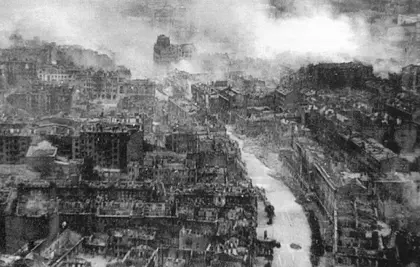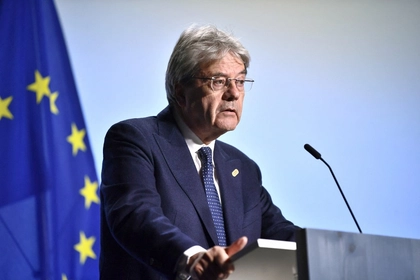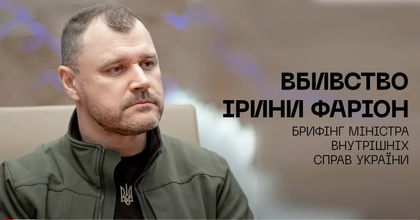Much has been made of the fact that the world today has parallels with the situation in the 1930s, with our political and military situations having the ghostly outline of the set of circumstances that took us into the Second World War.
People, especially historians, often argue to what degree the past can help us understand our present world. Geoffrey Elton and Edward Carr famously crossed swords over whether historical analysis is so irredeemably laden with human values that we can never extract sensible conclusions or use it to foretell the future.
JOIN US ON TELEGRAM
Follow our coverage of the war on the @Kyivpost_official.
Other more optimistic souls, Thomas Buckle and von Ranke among them, saw the possibility of history maturing into something more total; a great sweep of interpretation would open up before the hard analytical gaze of the historian armed with computers and facts.
The human condition may be so complex, so perturbed by chaos, that history can never admit to the sort of fixed laws and predictions to which physics aspires. If that is the case, some people say, then history is no science at all, it can do nothing other than titillate the human mind, entertain the public and educate us in prose and literature. It is a thing of erudition and beauty, with no practical value.
There is a half-way point between these two extremes of determinism and inescapable unpredictability which says that we can adduce certain patterns from history which can help us avoid a similar fate in the future. In that way, history can provide us with some measure, if not of clear prediction, of warning.

Kuleba Talks Peace in China – Bohdan Nahaylo
The forceful annexation of parts of Ukraine, autocracy on the ascendancy, economic woes, a resurgent populist nationalism which has bubbled up from conservative temperaments, and political fires which have ignited in the great cultural centres of the world. The pattern and personality of these disturbances unsurprisingly resonates with the 1930s.
What makes the difference between now and then is precisely the fact of the similarity. We stand here with hindsight of the consequences of mixing those ingredients together. History provides us with an admonition and some advice. In this alikeness of times is the antidote to stumbling into making the same mistakes. To say that the world is like the 1930s is to naively miss this most essential point of advantage.
Consider Europe: We know what followed when the annexation of Czechoslovakia in 1938 was met with the hopeful generosity of appeasement. We learned what occurs when a revanchist nationalism is mixed with military ambition and projected westwards while those countries confronted with that risk fail to coordinate in time. There is no reason to repeat these errors.
Then look to the US: In the late 1930s, the breaking storm in Europe was viewed as a problem for that continent, not for America. In respect of Ukraine, Marjorie Taylor Greene, a Republican member of the US House of Representatives recently asserted that: “Our government is at the same time funding a war that most people do not support in a country that no one can find on a map.”
Putting aside her educationally troubling assertion that no one in America can find the largest country in Europe on a map, her sentiments echo those of the 1930s, when many Americans saw Europe to be a distant land whose divisions and antagonisms were not their responsibility.
Ultimately, the war in Europe provided the milieu of global disorder that emboldened the Japanese Empire. In turn, Japan’s successes convinced it that the Pacific was there for the taking if only the US navy could be put out of action. A failure to act in the earliest stages of land annexation in Europe cannot be proven to have been a necessary determinant in eventual Japanese actions, but the general conditions for war ultimately landed on the docks of Pearl Harbour.
Today, a retreat on Ukrainian soil will embolden not just Russia, but other autocracies around the world. From Asia to the Middle East, a growing conflagration will erupt that will ultimately threaten the US itself. We have a chance to prevent this future because we have seen it before, and we know what must be done.
Unfortunately, some people seem to have drawn the opposite conclusion. Their view is that the focus should be on the Asia-Pacific region, since, they say, that is where the greatest threat to the US lies. Yet the threat they concern themselves with can be encouraged and unleashed by autocratic success in Europe. America’s concern for its Asia-Pacific security will become a self-fulfilling prophecy if it does not work with its allies in Europe.
The diffidence and delay in helping Ukraine across the West will provide the proof that the weakness of the West is ripe for exploitation in other areas of the globe. A protracted and growing problem in Europe provides the cover and a chance to seek gains elsewhere whilst the war absorbs time, energy and resources. Every day the war in Europe continues, every day the reach of its consequences extends.
In seeking to peer into what lies ahead, we may never achieve the vaunted hopes of people like Auguste Comte, who dreamt that history would yield to truths, and ultimately historians could take a seat with the physicists, the chemists, or biologists as claimants to precise knowledge.
The innumerable pathways and unfolding dramas that collide to shape our destinies may never produce anything other than the blurry outlines of buildings through the fog. But we can see those outlines, nonetheless. When the circumstances are so like those that we have seen before that we may even pick out the unambiguous profile of something we know to be a church or a clocktower in the mist, then we cannot then say that we did not know the shape of things to come when the fog dissipates into the reality of the present.
We are not in the 1930s, because furnished with the experience from those times, we know the outcome of our decisions; we are equipped with history and its insights; we clearly see the skyline ahead. The remarkable similarities between now and that period are the reason why we have no justification for failing the future.
There is no vindication in acting in any way that will encourage a repetition of that awful human spectacle. Applying the same lethargic appeasement and proffering the same isolationist excuses for non-engagement are not only an abject failure of the imagination, but also a failure to read the history books.
Sometimes history is just one “damn thing after another,” as Arnold Toynbee once memorably said. Sometimes it is a beautiful story that enriches our culture and that is enough, as George Macaulay Trevelyan insisted it should be. At other times, it is a majestic canvas painted with the thoughts pouring from millions of minds, not just their powerful leaders, as Marc Bloc had the courage and perspicacity to see.
But sometimes, just sometimes, history hands cold and unavoidable lessons to us, and in those moments of déjà vu, it finds its practical use - not as an instrument of technological benefit, but as an injunction from the past, an opportunity to save ourselves from ourselves.
In Ukraine and Europe today, those resemblances to the last century, which have been noticed by so many, are history in its finest practical manifestation. We should take heed of what it is telling us.
The views expressed in this opinion article are the author’s and not necessarily those of Kyiv Post.
Charles Cockell is Professor of Astrobiology at the University of Edinburgh.
You can also highlight the text and press Ctrl + Enter






